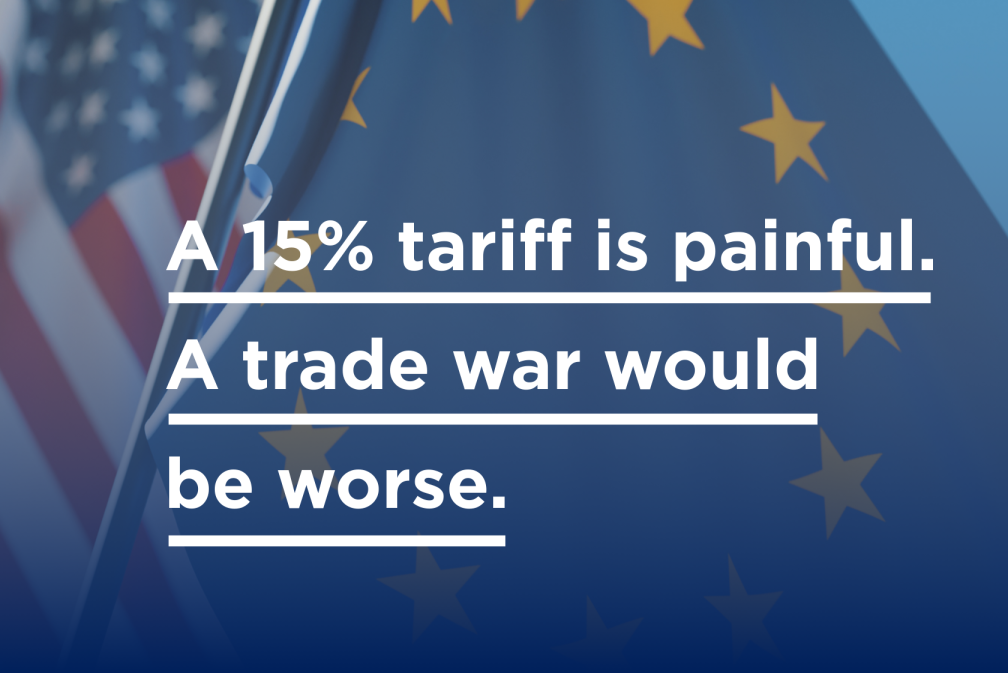This week’s events around ‘EU Green Week: Towards a water resilient Europe’ are just one example of how the public and private sectors can maximise their impact by working together to address global water challenges. With the upcoming European elections in 2024, the EU must take urgent action to address water scarcity in key areas, including water access and competitiveness, infrastructure, circularity, water-energy-food nexus, digitalisation, ecosystems, creation of an investment-friendly environment and global partnerships. These actions should include prioritising water supply for green technologies to meet growing demand, enhancing infrastructure resilience and reducing leakages, incentivising water stewardship through tax credits and learning platforms, encouraging public-private partnerships for ecosystem restoration, increasing funding for water-resilient projects and engaging in global initiatives addressing water stress. These recommendations and more are detailed in AmCham EU’s recent position paper on water resilience.
Because ensuring the sustainable and equitable management of water is a collective responsibility, American companies invested in Europe are moving forward with their own initiatives to safeguard this precious resource for current and future generations. AmCham EU members are recycling, replenishing and conserving water from as far west as France to Romania in the east. Their innovations are making their operations more sustainable and improving the quality of life in the communities they call home. Here are some snapshots of their cutting edge projects:
Because Greece has one of the highest levels of water consumption per capita in the EU, water is expected to become an increasingly precious resource due to climate change. Cisco partnered with a technology company and the local municipal water supply and sewage utility in Larissa, Greece to digitise the collection of domestic water meter readings, enabling utilities to provide better service to consumers and operate more sustainably.
The Coca-Cola Company – Austria, Bulgaria, Croatia, Hungary, Romania and Serbia
An estimated 80 percent of the floodplains and wetlands along the Danube River – Europe’s second largest river basin and the most international in the world – have disappeared over the past 150 years. To protect it, the Coca-Cola Foundation partnered with World Wide Fund for Nature Central and Eastern Europe and the International Commission for the Protection of the Danube River, and as of 2021, they had replenished approximately 13.45 million m3 of water and restored over 5,462 hectares of vital wetlands, rivers and floodplains.
With climate change increasing both the demand for freshwater and water scarcity, the Asturias government collaborated with DuPont and commissioned a three-month pilot project at the Villaperez wastewater treatment plant on the outskirts of the city of Oviedo in Asturias. The initiative succeeded in consistently supplying reclaimed water for use as makeup water in industrial cooling towers and evaporative condensers, demonstrating how ultrafiltration technology can be harnessed as part of an efficient solution to achieve water circularity. This partnership has produced a replicable model that will not only deliver significant benefits to Asturias but will also support municipalities across Spain and further afield that face similar challenges.
In parts of France, episodes of frequent drought have become a recurring issue in recent years. By partnering with Nalco Water – an Ecolab company – Cargill successfully optimised and reduced its freshwater intake at a local production site in France by 32,500 m3 per year for a 53% drinking water reduction in the cooling systems. It maintained operational excellence and performance while reducing effluent outflow by 93% and contributing to the French government’s overarching water reduction strategy.
Read more about AmCham EU members’ water resilience initiatives on Invested in Europe, our platform for stories of American companies’ positive impacts on communities across the continent.



